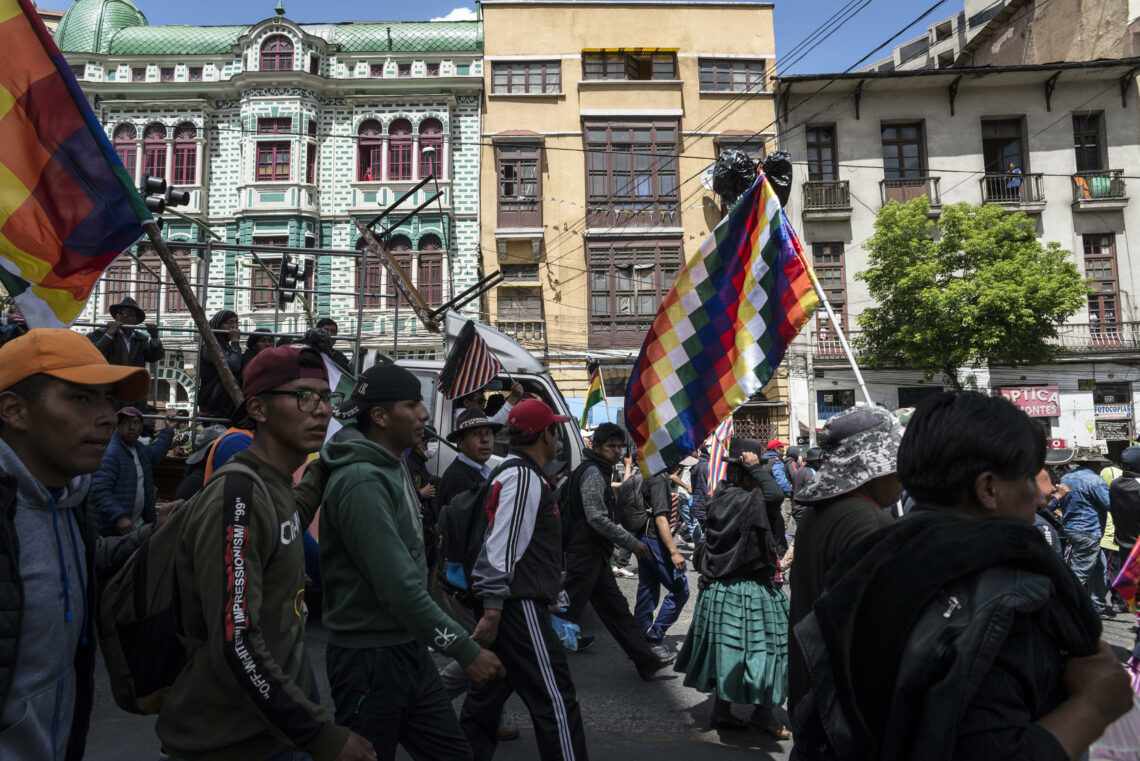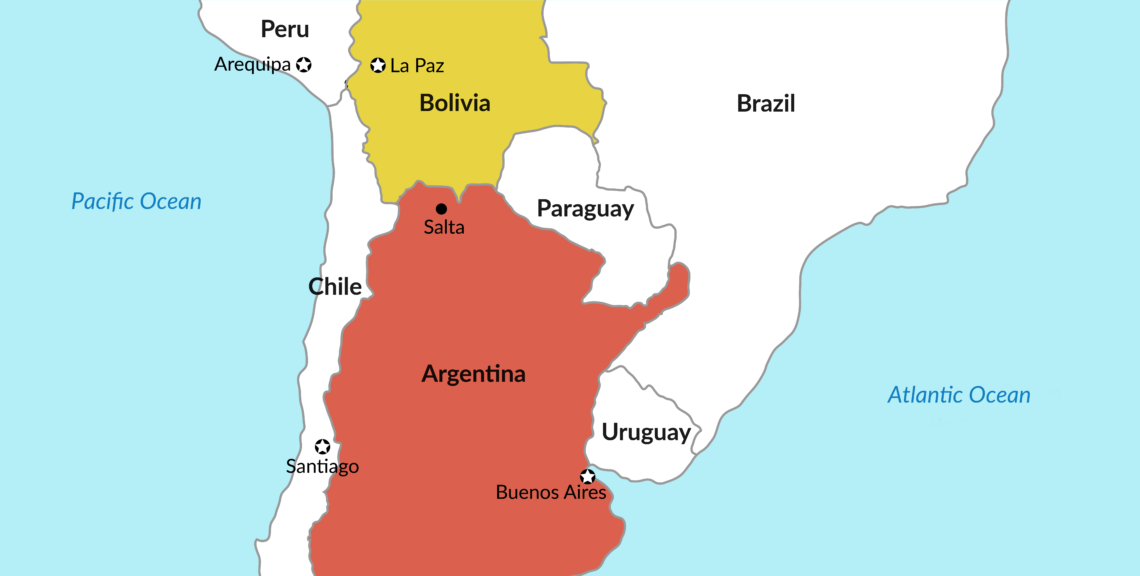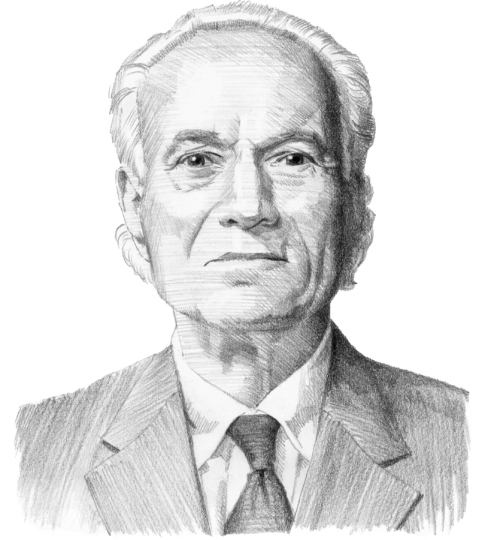Democracy put to the test in Bolivia
In 2019, long-time President of Bolivia Evo Morales had to resign in the aftermath of violent protests. The right-wing interim government that succeeded him must now stabilize the country. Meanwhile, the former president is striving to rally his supporters.

In a nutshell
- Ousted Bolivian leader Evo Morales could still play an influential role from abroad
- Acting President Jeanine Anez is facing criticism over human rights violations
- The current government will need to address protesters’ requests to stay in power
Evo Morales was the president of Bolivia from 2006 to November 10, 2019, when he resigned under pressure from violent street protests. The riots had begun on October 25, immediately after the Supreme Electoral Tribunal (TSE) had declared him the victor in the October 20 elections by a margin barely large enough to avoid a second round of voting between him and the conservative candidate Carlos Mesa. The final push came when the leader of the armed forces encouraged the president to resign to preserve public order. Mr. Morales fled the country for asylum in Mexico on November 12 and a month later moved to Argentina, where the new Peronist government of President Alberto Fernandez gave him safe haven.
His followers inside and outside Bolivia denounced what they called a coup and the interruption of democracy in Bolivia. The vice president and the leaders of both chambers of the legislature also resigned on November 10, leaving Jeanine Anez, the second vice president of the Senate, next in line to succeed to the presidency. She said that she would serve to preserve democracy in Bolivia and stated that elections would be held within 120 days of the former president’s resignation. Those elections are now scheduled for May 3.
The way forward is complicated. The protesters poured into the streets in the aftermath of the October elections mostly because they were outraged that former President Morales had run for a fourth term, which is explicitly prohibited by the constitution. A national referendum to make an exception to this rule had previously been held and the proposal was rejected by the majority of the population.
Protesters poured into the streets because they were outraged that former President Morales had run for a fourth term.
The TSE released the preliminary results, known as the Quick Count, on the night of the election, showing that the gap between the front-runners, Mr. Morales and Mr. Mesa, was slightly below eight percent with roughly 83 percent of the votes counted. In the following days, there were announcements of technical difficulties in tabulating the votes. Protests turned violent when the final tally was published, indicating a lead of more than a 10 percent gap for Mr. Morales, which was the amount that would obviate a second round of voting.
In an attempt to placate the protesters, Mr. Morales called in an investigative team from the Organization of American States (OAS), which has a long history of electoral observation throughout the region and was expected to legitimize the results. But the OAS mission declared that the gap between the Quick Count and the final result was the result of foul play related to bad practices and server irregularity during the vote count. Several outside observers have objected to the harsh conclusions of the OAS report. Whatever its validity, the OAS statement had almost immediate and grave consequences for tranquility among the electorate.
Aftermath
Former President Evo Morales was elected in 2005 by promising to include and empower marginalized groups. More than 20 percent of the country’s population considers itself indigenous and nearly 70 percent self-identify as mestizo, a mix of indigenous and white ethnicities. Only 5 percent of the population identify as white. During Mr. Morales’s several terms in office, the rate of extreme poverty in Bolivia was cut in half. By 2010, the World Bank reclassified Bolivia from “lower income to lower-middle income” because the country had crossed the $1,000 per capita middle-income threshold.
Facts & figures

Today, the majority have little faith that the political elite – of predominantly European ethnicity – that ruled for two centuries will respect the advances made on their behalf under Mr. Morales.
Since former President Morales left the country, public opinion polls suggest that most Bolivians do not believe his resignation was a result of a coup, but rather the outcome of social unrest. It must be noted, however, that such polls do not take indigenous communities into account, so the totals are skewed to reflect the views of the white and urban population.
Possibilities and challenges
From his perch in Buenos Aires, former President Morales summoned the leaders of his party, the Movement for Socialism – Political Instrument for the Sovereignty of the People (MAS), to a meeting in Argentina, which took place in mid-January. Shortly after, on January 19, it was announced that Luis Arce Catacora, former minister of economy under the Morales administration, would be the presidential candidate for MAS in the May 3rd elections. David Choquehuanca, former foreign minister of Bolivia, will be his running mate for the vice presidency. Mr. Choquehuanca belongs to the Aymara indigenous nation, which has significance for maintaining MAS’s image as the party for the indigenous. Putting Mr. Arce Catacora at the head of the ticket is a partial victory for former president Morales as the party first had selected former foreign minister Choquehuanca to be their presidential candidate.
It appears that the fight for democracy in Bolivia has stagnated, if not entirely come to a halt.
Of course, Mr. Morales’s involvement in party politics may, over time, become a way for him to continue pulling the strings of the presidency behind closed doors. This is already an issue to which Mr. Arce Catacora has responded in several interviews and news outlets have referred to him as “Evo Morales’s candidate.” However, MAS still controls the majority in Congress, and has moved to moderate former president Morales’s influence. Although he has suggested that he may run for Senate, he may in fact be barred due to interruptions in his residency in Bolivia. Not to mention that President Anez’s government has issued a warrant for the former president’s arrest, further complicating his return. The Inter-American Commission on Human Rights (IACHR) has protested the acting president’s decree calling on the military to use any and all means to neutralize demonstrations.
The potential for a new Christian government to remain in power may have social repercussions for many Bolivians.
Scenarios
It appears that the fight for democracy in Bolivia has stagnated, if not entirely come to a halt. While Ms. Anez remains in power, she will likely face a backlash from international organizations calling for an investigation of human rights violations. Protests will continue in the weeks and possibly months to come, as the former president continues to have great influence in firing up his supporters, even from abroad. Ms. Anez will need to find a way to quell the protests or satisfy some of the demands of protesters.
New president of the Senate Monica Eva Copa Murga has shown herself willing to collaborate with the interim president to prepare for the new round of elections in May. Some potential opposition candidates include Luis Fernando Camacho, who was among those who demanded Mr. Morales’s resignation, and Chi Hyun Chung, a religious conservative Korean-Bolivian doctor and scientist aligned with the Christian Democratic Party, who ran against former President Morales in the 2019 election. Former president Jorge Quiroga has also thrown his hat in the ring, and most recently, acting President Anez indicated that she would also run.
The potential for a new, Christian government to remain in power, should MAS not win, may have social repercussions for many Bolivians. Since Mr. Morales’s first term, much progress had been made in expanding and protecting indigenous rights. Bolivia has been lauded for its plurinational model of governance, which includes over 30 official languages, and which boasts two national flags that encompass the plurality of ethnic identities. Now, with this administration under a cloud and the legitimacy of MAS in question, it is possible that a new conservative and neoliberal government will have a negative impact on the indigenous community.
Ms. Anez may also struggle to remain in power and hold her ground until new elections take place.








